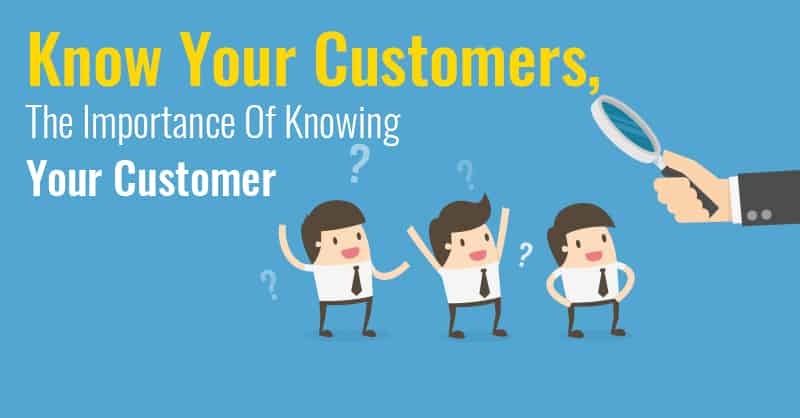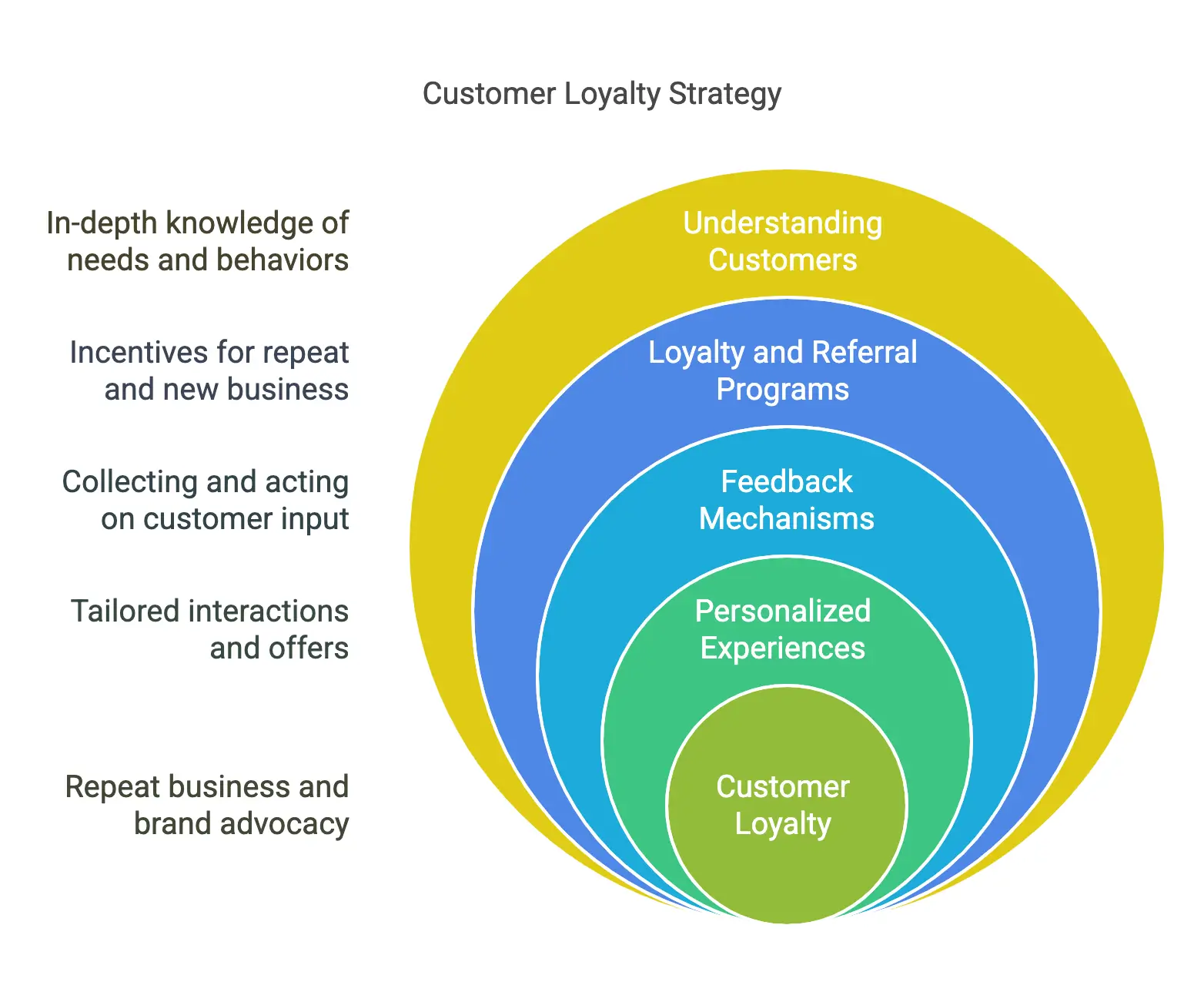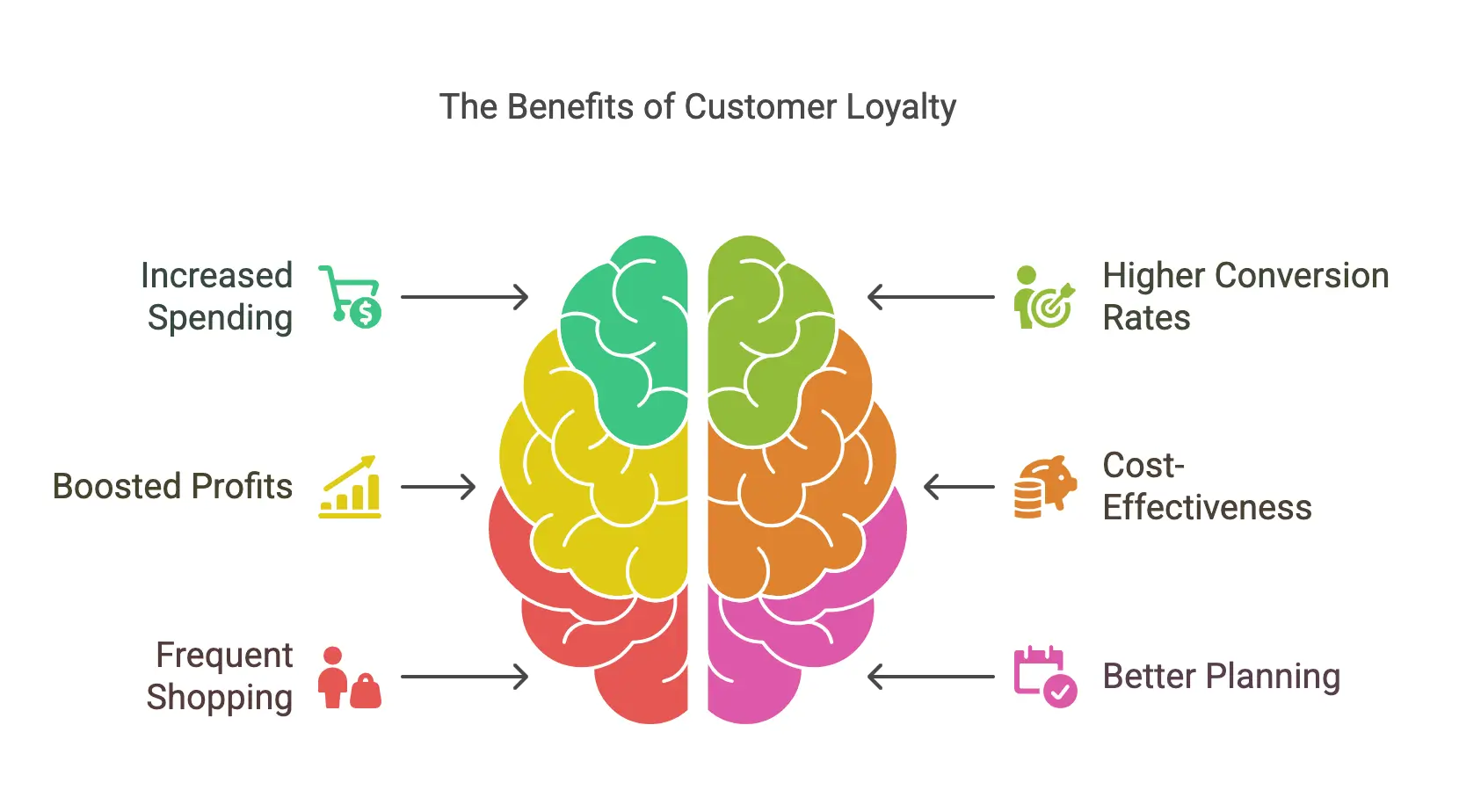
Do you know your customers? Understand your customers and conduct in-depth research and analysis of consumer behavior to create customized strategies. Understanding your customers means that you must have a thorough understanding of their needs, preferences, and preferences in order to provide more personalized products or services that meet their needs. At the same time, it is also very important to maintain customer loyalty, because loyal customers will not only continue to purchase your products or services, but also recommend your brand to others. So, you can achieve this effectively by collecting and analyzing customer feedback, providing excellent customer service, and building long-term relationships.
Customer loyalty can have a significant impact on a company's success, and when loyal customers spread positive word-of-mouth, it can to a phenomenon known as customer loyalty fusion, where the customer base multiplies as a result.
To cultivate customer loyalty, you'll want to get personal with your customers. Learn their names, their stories and their buying habits. Based on this information, create a sales pipeline that resembles your typical customers' experiences to better understand how you can make their buying journey memorable. For instance, on a customer's birthday, you could send them a personalized birthday message with a special deal.
A customer loyalty program is a great way to encourage and reward loyal customers. These programs typically have criteria for rewards (e.g., the customer must spend X amount per month), but the benefits for the customer usually outweigh these conditions. There are various types of customer loyalty programs, such as stamp card and points systems. What they all have in common is the incentive for customers to spend more money on your products or services.
Like a loyalty program, a referral program rewards customers for their engagement with a business. In this case, customers receive certain benefits if they refer your company to a friend or loved one. This not only helps attract new customers (referral marketing is both effective and affordable), but also keeps your existing customers coming back for more, as they now have incentives to do business with you.
To show your customers how much you value them and how you are willing to constantly improve, ask for their feedback. Send out surveys, request email reviews and be open to the feedback you receive. Customers are more willing to invest in businesses that value their opinions and insights.
Customer loyalty is a customer's likelihood of doing repeat business with you. This stems from customer satisfaction and outweighs availability, pricing and other factors that typically impact buying decisions. When a customer is loyal to a product, service or brand, they are willing to wait for a restock or spend a little extra money for it.

- Repeat customers typically spend more than new customers. Because they already trust your business and its products or services, existing customers tend to spend more money than new customers. In fact, the amount they spend typically increases with the duration of doing business with your brand.
- Loyal customers yield higher conversion rates. Existing customers have an average conversion rate of around 60 percent to 70 percent, while new customers have a conversion rate of 5 percent to 20 percent. In other words, you get more value from loyal customers
- Customer loyalty boosts profits. The more customer loyalty you have, the better your profits will be. In fact, just a 5 percent increase in customer retention could increase business profits by 25 percent to 95 percent.
- Customer retainment is cheaper than customer recruitment. While recruiting new customers is important, it can be expensive – around five times more expensive than retaining a loyal one. Simply retaining loyal customers is much more cost-effective, as they bring higher profits at a lower cost.
- Loyal customers shop regularly. Because they’ve already had positive experiences with your brand, repeat customers tend to shop much more frequently than new customers. This is especially true around the holidays, when consumers are purchasing gifts and spending more than they typically would during the rest of the year.
- Customer loyalty helps you plan ahead. When you have loyal customers, you can make better anticipatory decisions and effectively plan your finances and marketing efforts.

It takes time to build customer loyalty to your brand, but once you have it, you have a customer for life. Doing so takes dedication and care to ensure your customers feel valued, appreciated and, above all, as though their needs were met. Regularly consider the customer experience and how to improve it further to encourage more customers to come back to your business. After all, it’s repeat business that keeps most small businesses profitable.

Watch a quick demo!
Discover the power of customer retention and engagement with our cutting-edge augmigo product.
Demo Request